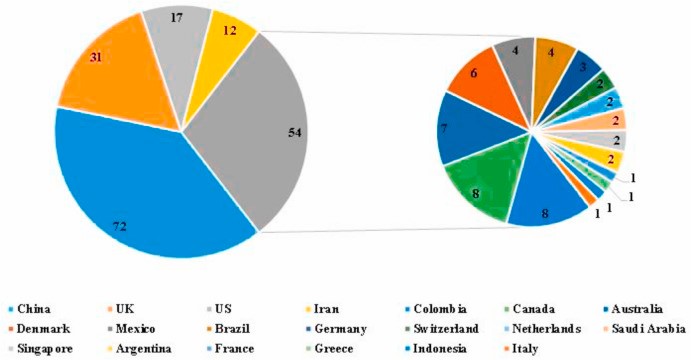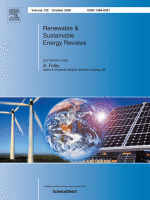Academics from the EPSRC National Centre for Energy Systems Integration (CESI) and the Supergen Energy Networks Hub Dr Hamid Hosseini, Dr Adib Allahham, Dr Sara Walker and Prof Phil Taylor recently published their journal paper in Elsevier’s prestigious journal Renewable & Sustainable Energy Reviews (impact factor 12.11).
About the author

Dr Hamid Hosseini joined Newcastle University in 2017 as a postdoctoral research associate to the EPSRC National Centre for Energy Systems Integration (CESI). Since joining the team, Hamid has been actively involved in research looking at planning, optimisation and operational analysis of integrated multi-vector energy networks. He also collaborated with a multi-disciplinary team on the UKRI Research and Innovation Infrastructure (RII) roadmap project, advising UKRI on the current landscape and future roadmap of Energy RIIs. He has supported and collaborated with several CESI Flex Fund projects to investigate further various aspects of Energy Systems Integration (ESI). Moreover, he is working with the Executive Board of Northern Gas Networks to identify the potential energy systems challenges that could be investigated at the Customer Energy Village of the Integrated Transport Electricity Gas Research Laboratory (InTEGReL), through collaboration with a multi-disciplinary team of energy experts in industry and academia.
Contact email: hamid.hosseini@ncl.ac.uk and profile details
The international aspiration to reach net zero carbon in energy systems by 2050 is growing. In the UK, the government has set a target of ‘Net Zero’ Greenhouse Gas (GHG) emissions by 2050 in order to reduce contribution to global warming [2]. This necessitates performing energy evaluation through a system-of-systems approach, in order to understand the intrinsic properties of the main layer/sections of the Integrated Energy Systems (IESs), from natural resources and distribution to the final energy user as well as the interactions and interdependencies within each layer/section [3].
This paper provides a systematic review of recent publications on simulation and analysis of integrated multi-vector energy networks (rather than energy hubs) and carries this out through the lens of the internationally accepted concept of the energy trilemma, i.e. Flexibility of Operation, Security of Supply and Affordability. The significant detail included in the paper and the link to the trilemma is required in order to identify gaps and directions for an appropriate future applied research for facilitating the path to a decarbonised economy.
A systematic literature review of nearly 200 published papers was carried out using keywords to analyse Integrated Energy Networks (IENs). The papers have a wide, international authorship (Figure 1), showing that the topic of energy networks analysis is an important topic for governments around the world, as this supports meeting carbon reduction targets.

The reviewed papers were classified into three groups (i) Operational analysis (ii) Optimal dispatch and (iii) Optimal planning, focussing on energy networks including gas, electricity and district heating networks as well as their interactions and interdependencies.

A detailed evaluation of the energy trilemma was carried out for each of the three groups of papers.
The paper looks at key findings, provides insights for the energy research community towards pursuit of low carbon transition and makes recommendations for future research priorities including: (i) development and demonstration of cyber resilient smart energy management frameworks, (ii) ways to overcome organisational and regulatory barriers for future increased energy networks integration, (iii) uncertainty analysis of the future performance of IENs, (iv) potential economic value of energy systems integration and (v) deployment of smart multi-energy regions.
The full paper, will appear in the November 2020 issue of the Elsevier Journal, Renewable and Sustainable Energy Reviews, and is available to view online.

References:
[1] Hosseini, SHR, Allahham, A, Walker, SL, Taylor, P. (2020). Optimal planning and operation of multi-vector energy networks: A systematic review. Renewable and Sustainable Energy Reviews, 133. DOI: j.rseer.2020.110216
[2] Committee on Climate Change. Net Zero – the UK’s contribution to stopping global warming. 2019. accessed, https://www.theccc.org.uk/publication/ net-zero-the-uks-contribution-to-stopping-global-warming/. [Accessed 28 October 2019].
[3] Eusgel I, Nan C, Dietz S. System-of-systems approach for interdependent critical infrastructures. Reliab Eng Syst Saf 2011;96(6):679–86.